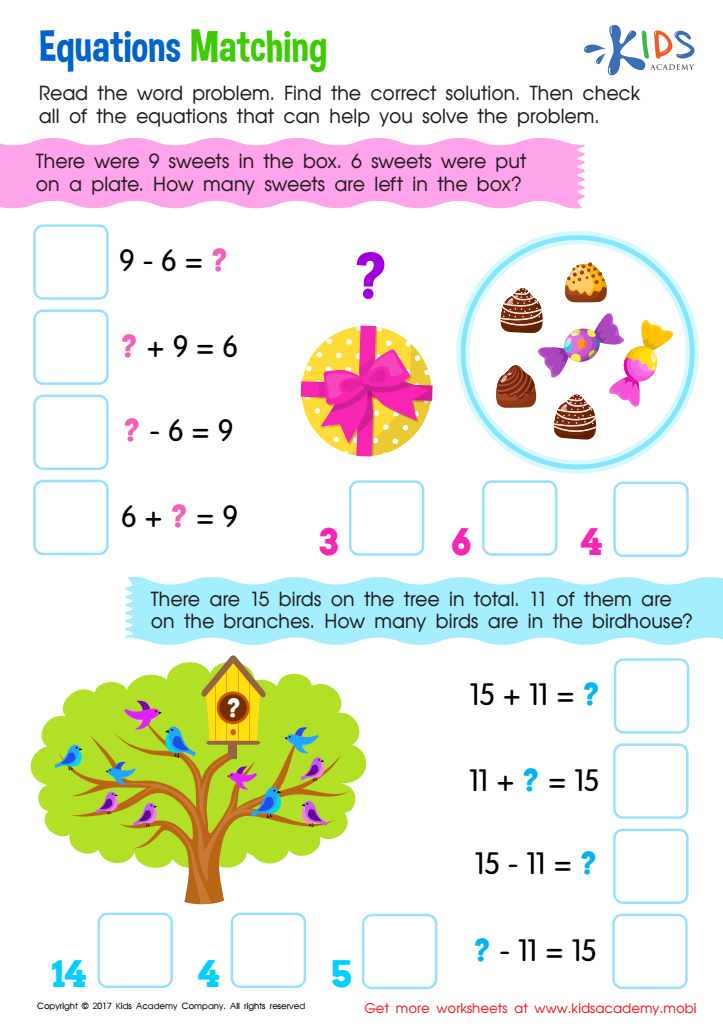Understanding equations Addition Worksheets for Ages 5-8
4 filtered results
-
From - To
Dive into the world of math with our "Understanding Equations: Addition Worksheets for Ages 5-8." These engaging worksheets are designed to introduce young learners to the concept of equations through fun and interactive addition problems. By practicing with these sheets, children will build a solid foundation in understanding how numbers work together, developing critical thinking, and problem-solving skills. Each worksheet is tailored to captivate young minds and make learning enjoyable. Perfect for classroom or home use, our addition worksheets are an excellent resource for educators and parents seeking to enhance their child's early math skills.


Equations Matching Word Problems Worksheet
Understanding addition equations is fundamental for children aged 5-8 as it lays the foundation for their future mathematical learning. At this stage, grasping basic arithmetic underpins more complex problem-solving and critical thinking skills that are essential throughout life. For parents and teachers, ensuring a strong comprehension of addition equips children with the confidence to tackle more advanced math concepts, like subtraction, multiplication, and division, effectively as they progress in their education.
Children who master these early math skills tend to perform better academically and are more likely to develop a positive attitude toward learning in general. This basic understanding fosters logical reasoning and can improve performance across subjects, as math concepts often intersect with areas like science and technology.
Moreover, basic arithmetic skills are vital for practical, everyday activities. From managing money to telling time, addition and other basic operations are constantly in use. Recognizing this, parents and teachers have a crucial role in nurturing a child's foundational math skills through engaging, practical, and age-appropriate learning experiences. By prioritizing the understanding of addition equations, caregivers can set children on a path to both academic success and practical competency in their everyday lives.
 Assign to My Students
Assign to My Students























